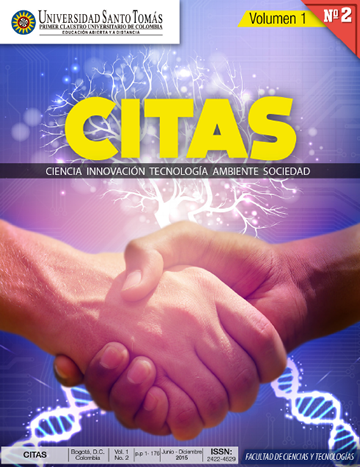Método para la gestión de lecciones aprendidas en proyectos de TI
Method for managing lessons learned in IT projects
Abstract (en)
Knowledge, an intangible asset of the organizations, represents a strategic role in the creation of value in the business field, currently in the stage of globalization only they reached success flexible companies that learn increasing their knowledge for continuous improvement and the creation of value in each of its processes. Based on this scenario, and taking into account transformations that enterprises should carry out the development projects, the aim of this article is to present a method that can detect, transmit and articulate the experiences generated by people that makes up a project, promoting a systematic process that contributes to the generation of knowledge derived from experience gained through the stages of an TI project.
Abstract (es)
El conocimiento, un activo intangible de las organizaciones, representa un papel estratégico en la creación de valor en el ámbito empresarial, actualmente en el escenario de la globalización solo alcanzarán el éxito las empresas flexibles, que aprendan y reaprendan incrementando su saber para mejorar continuamente y generar valor agregado en cada uno de sus procesos. Partiendo de este escenario, y teniendo en cuenta las trasformaciones que las empresas deben llevar a cabo para el desarrollo de proyectos, el objetivo de este artículo es presentar un método que permita detectar, transmitir y articular las experiencias generadas por las personas que conforman un proyecto, fomentando un proceso sistemático que contribuya a la generación de conocimiento derivado de la experiencia adquirida a través de las etapas de un proyecto de TI.
References
BID, (2001). Banco Interamericano de desarrollo. Notas de Lecciones Aprendidas.
Brady, Tim and Davies, Andrew. (2004). Building project capabilities: from exploratory to exploitative learning Organization Studies, 25 (9). pp. 1601-1621. ISSN 1741-3044
Darín, S. (2005). Gestión del Conocimiento.
Davenport, T.H.; Prusak, L. (2000). Working Knowledge – How Organizations manage what they know. Harvard Business School Press.
Earl, M.J. Yscott, l. A. (1999): “Opinion, What is a chiefknowledge officer?, Sloan Management Review, Winter
Fernández, Z. (2001). “Conocimientos, capital estructural y ventajas competitivas”. Revista de Investigación e Información Tecnológica. Madrid. Págs. 57-62
Liberona, D., & Ruiz, M. (2013). Análisis de la implementación de programas de gestión del conocimiento en las empresas chilenas.Estudios Gerenciales http://dx.doi.org/10.1016/j.estger.2013.05.003
Nieves, Y., León, M. (2001). La gestión del conocimiento: Una nueva perspectiva en la gerencia de las organizaciones. ACIMED 9 (2): 121-126
Peña, P. (2001). To know or not to be. Conocimiento: El oro gris de las organizaciones. Madrid: Fundación DINTEL.
Pyöriä, P. (2005). The concept of knowledge work revisited. J. Knowl. Manag. 116–127
Visitas
Downloads
How to Cite
License
The authors sign a transfer of rights so that Universidad Santo Tomás can publish the articles under the conditions described below. The authors, readers and other users are free to share, copy, distribute, perform and publicly communicate the work under the following conditions:
-
Attribution — You must give appropriate credit, provide a link to the license, and indicate if changes were made. You may do so in any reasonable manner, but not in any way that suggests the licensor endorses you or your use.
-
NonCommercial — You may not use the material for commercial purposes.
-
ShareAlike — If you remix, transform, or build upon the material, you must distribute your contributions under the same license as the original.
No additional restrictions — You may not apply legal terms or technological measures that legally restrict others from doing anything the license permits.
CITAS is licensed under Creative Commons Attribution-NonCommercial-ShareAlike 4.0 International (CC BY-NC-SA 4.0).

Until 2019 the documents published in the magazine were under the Creative Commons Attribution-ShareAlike license (CC BY-SA), however, in order to guarantee the open and free distribution of the content published in the magazine, it was decided to change the type Commons Attribution-NonCommercial-ShareAlike 4.0 International license (CC BY-NC-SA 4.0)






